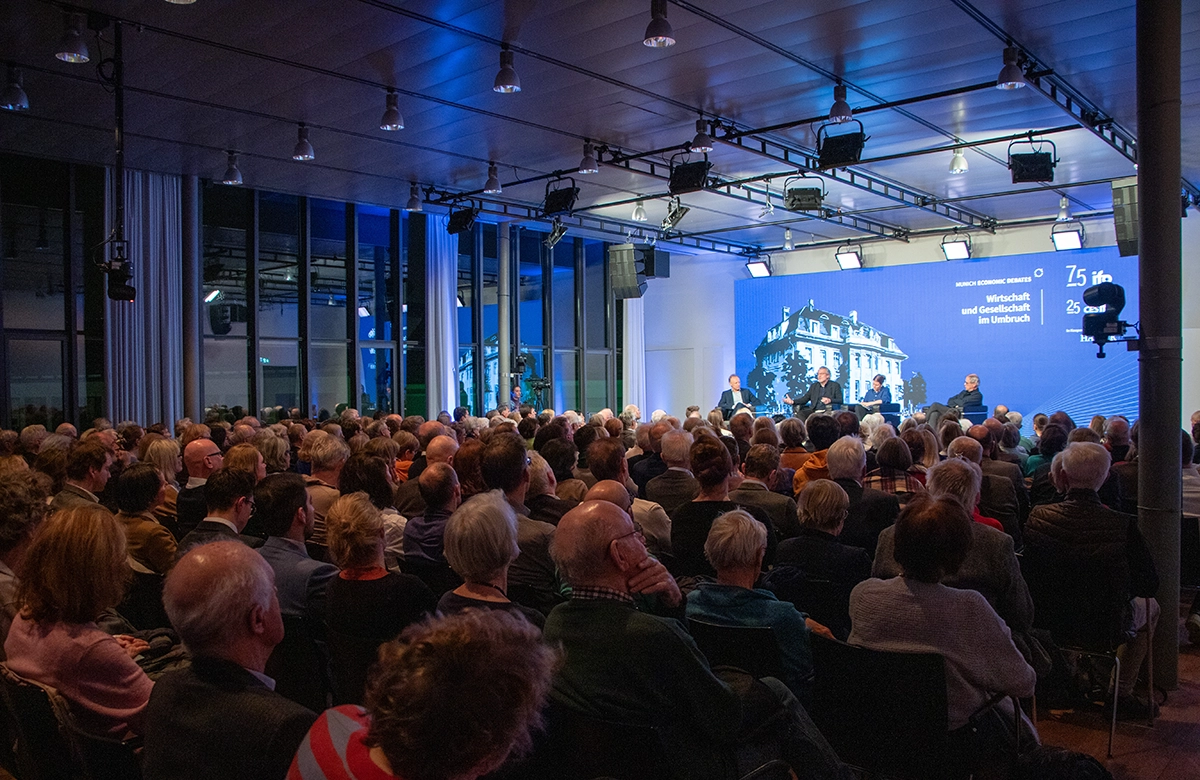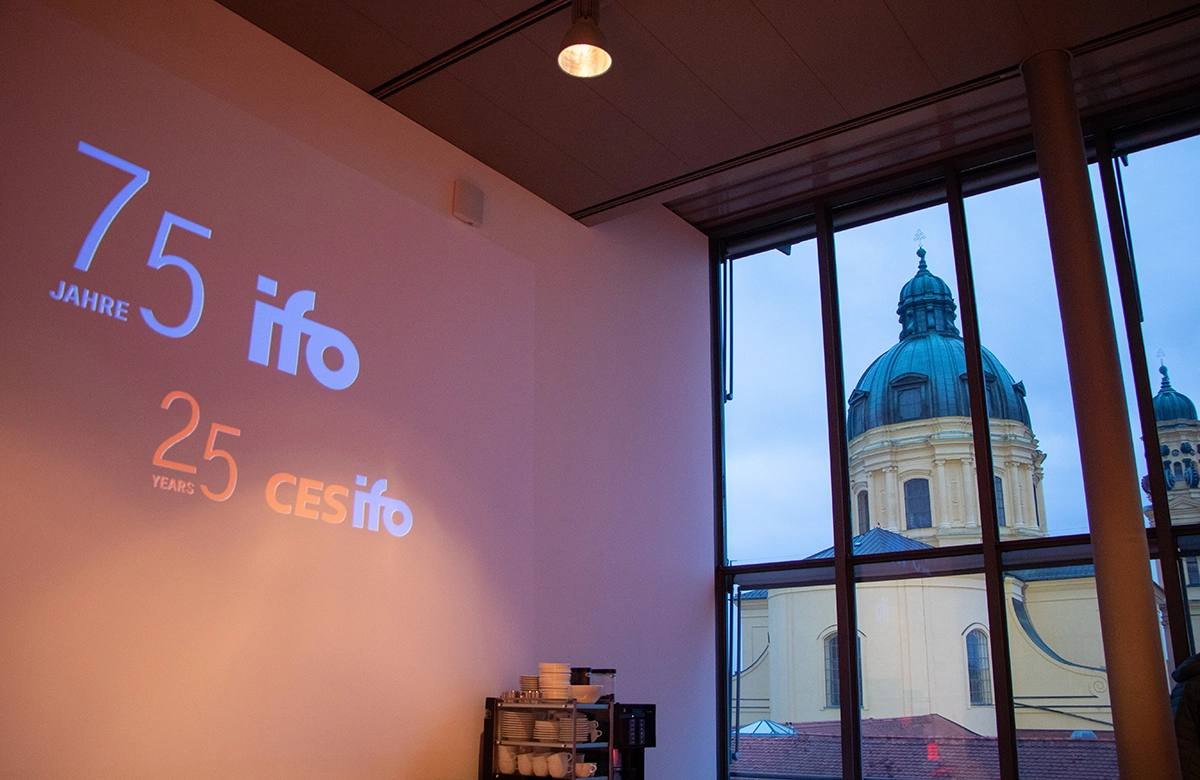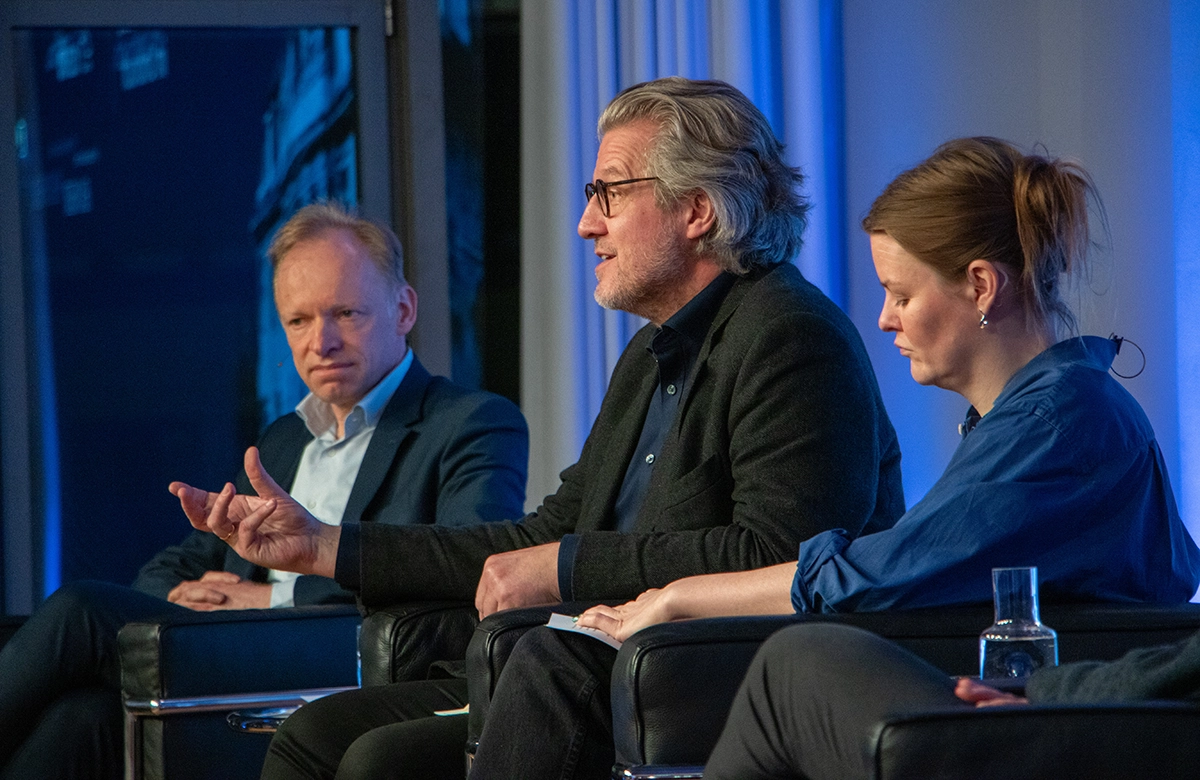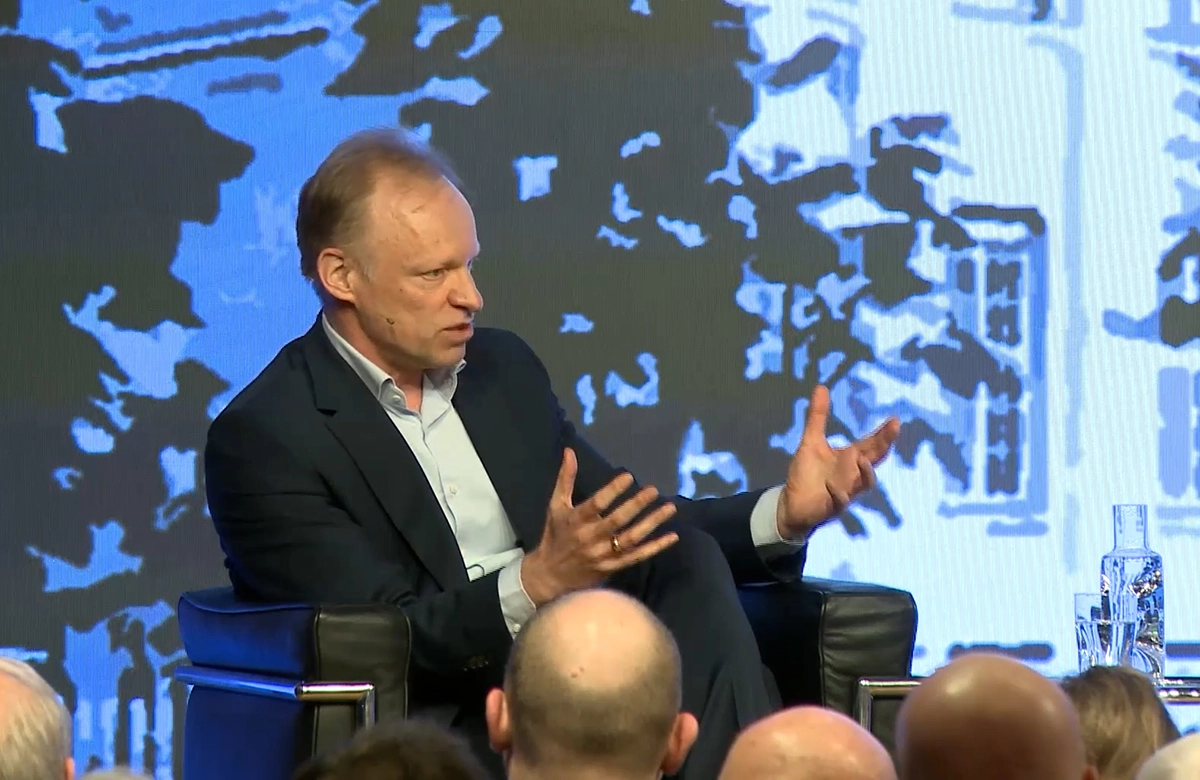Climate catastrophe, demographic change, digitalization, and war: How do the perspectives of literature and science differ on these pressing issues? Are experiences of upheaval reflected differently across disciplines? What opportunities are there for shaping the future? On March 3, 2024, ifo President Clemens Fuest, historian Philipp Blom, and author Theresia Enzensberger discussed these questions at the Literaturhaus.


Literary Utopias and Dystopias
In her novel Auf See (literally “At Sea”), Theresia Enzensberger vividly depicts a world dominated by apocalyptic preparation. A small, elite community withdraws to a Baltic Sea island to live self-sufficiently – a utopia that gradually turns dystopian. The novel explores themes of self-reliance and personal responsibility, critiquing neoliberal ideas through a narrative inspired by the libertarian visions of a Silicon Valley tech entrepreneur. Enzensberger’s story suggests that the antidote to dystopia lies in fostering social care and communal solidarity.
Lessons from the Little Ice Age
Philipp Blom, an acclaimed author and historian, notes that history has always been marked by upheavals. He points to the Little Ice Age, beginning in the mid-15th century, when temperature drops of up to two degrees Celsius had profound economic and societal impacts. Blom argues that, just as societies emerged transformed from past crises, we too will likely undergo significant changes in response to today’s challenges. While historians and writers cannot predict the precise nature of future societies, they can craft narratives that offer new perspectives and insights.


The Search for New Scientific Theories
Clemens Fuest addresses the current upheavals through scientific research and policy advice. He notes that economics typically considers – mathematically – how the world might function in the future. He emphasizes that traditional scientific methods are inherently backward-looking, as they rely on historical data to draw inferences for the future. However, in periods of rapid change, this approach has its limitations. Fuest argues that during such times, the focus should shift toward developing new theories, models, and assumptions that can better capture the dynamics of future developments.
You can find the recording of the discussion here: